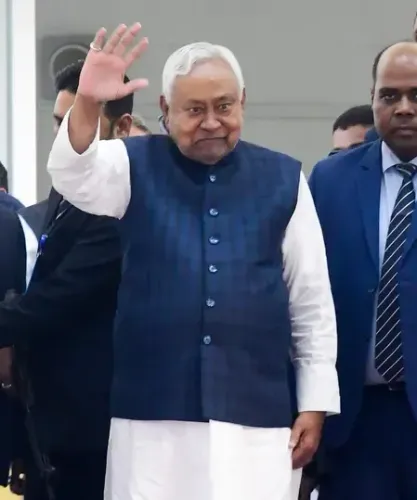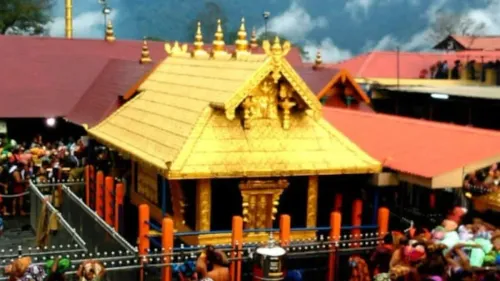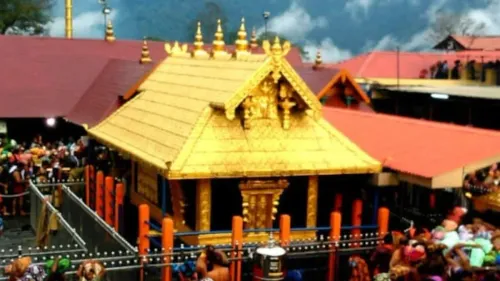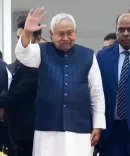How Does the Constitution Guide Us to Reject Colonial Mindsets? - Prez Murmu
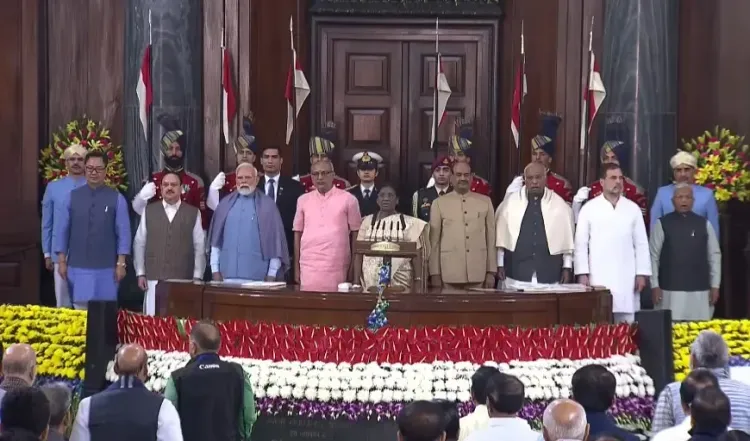
Synopsis
Key Takeaways
- Constitution Day is celebrated annually on November 26.
- The Constitution was adopted on November 26, 1949.
- President Murmu emphasizes the importance of safeguarding personal and democratic rights.
- Significant legislative reforms include the abolition of triple talaq and the Goods and Services Tax.
- The Constitution serves as a guiding force for national unity.
New Delhi, Nov 26 (NationPress) Celebrating the 75th Constitution Day on Wednesday, President Droupadi Murmu remarked that the architects of India's Constitution envisioned a nation in which the personal and democratic rights of every citizen are consistently safeguarded.
The Constitution Day celebrations took place at Samvidhan Sadan within the Parliament, attended by dignitaries including Vice President C.P. Radhakrishnan, Lok Sabha Speaker Om Birla, Prime Minister Narendra Modi, and leaders such as Mallikarjun Kharge and Rahul Gandhi.
In her address, President Murmu reflected on the significant day when the Constitution was completed, saying, "On this day, November 26, 1949, within the Central Hall of the Constitution House, the members of the Constituent Assembly finalized the drafting of the Constitution of India. It was also on this day that the people of India embraced our Constitution. Following independence, the Constituent Assembly served as India’s provisional Parliament. Dr. Bhimrao Ambedkar, who chaired the Drafting Committee, was among the key figures behind our Constitution."
She went on to state that "the vision of our Constitution-makers was to ensure that our personal and democratic rights are perpetually protected," underscoring the ongoing relevance of that vision for the nation.
Highlighting India's advancements, the President noted that "lifting 25 crore individuals out of poverty represents one of the country's most significant accomplishments."
She acknowledged the substantial contributions of women, youth, Scheduled Castes, Scheduled Tribes, farmers, the middle class, and the emerging middle class in fortifying the democratic fabric, asserting that the Constitution continues to be a guiding force in "rejecting colonial mindsets and embracing nationalist ideologies."
Reflecting on legislative achievements, President Murmu remarked, "Parliament has taken historic initiatives to empower our sisters and daughters, tackling the social issue of triple talaq. Additionally, the implementation of the Goods and Services Tax, the largest tax reform since independence, aimed to foster economic cohesion within the country."
She further expressed that "the repeal of Article 370 removed a critical hurdle that had impeded the political integration of the nation. The Nari Shakti Bandhan Act is poised to usher in a new phase of development centered on women."
The President also highlighted that a nationwide observance commenced on November 7 to honor the 150th anniversary of the national anthem, 'Vande Mataram.'
During the celebrations, President Murmu unveiled the digital edition of the Constitution in nine languages: Malayalam, Marathi, Nepali, Punjabi, Bodo, Kashmiri, Telugu, Odia, and Assamese. Together with all attendees, she paid homage to the Constitution and recited the Preamble, reaffirming the commitment to justice, liberty, equality, and fraternity.
Constitution Day, also referred to as Samvidhan Divas, is celebrated annually on November 26, commemorating the adoption of the Constitution by the Constituent Assembly, which took effect on January 26, 1950. This observance was officially recognized in 2015 to honor the foundational principles of justice, liberty, equality, and fraternity enshrined in the Constitution.


